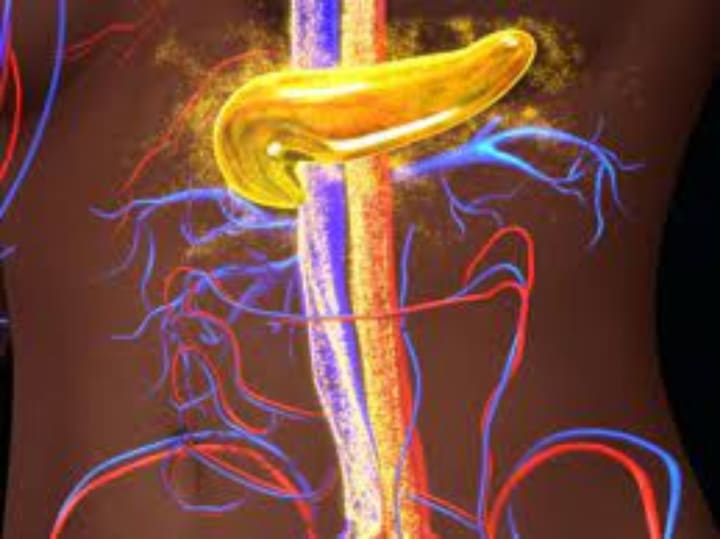How diabetes related to diarrhea..?
Cure it as soon as possible..

Diarrhea is a common gastrointestinal condition that affects people of all ages and can have a significant impact on daily life. It is characterized by loose, watery stools and an increased frequency of bowel movements. While it is often a temporary condition that resolves on its own, it can also be a symptom of an underlying health issue. By understanding the causes and symptoms of diarrhea, individuals can better manage the condition and seek appropriate treatment when necessary.
The definition of diarrhea is relatively straightforward: it refers to frequent bowel movements with loose or watery stools. This change in bowel habits can vary in severity, ranging from mild to severe. In addition to loose stools, individuals with diarrhea often experience other symptoms such as abdominal cramping, bloating, nausea, and a sense of urgency to have a bowel movement.
There are several common causes of diarrhea. One of the primary causes is infections, including bacterial, viral, and parasitic infections. These infections can be contracted through contaminated food or water, or through close contact with an infected individual. In such cases, the body responds by increasing the fluid content of the stool, leading to loose and watery bowel movements.
Foodborne illnesses are another common cause of diarrhea. Consuming food or water that is contaminated with bacteria, parasites, or toxins can result in diarrhea. These contaminants can irritate the gastrointestinal tract, leading to increased bowel movements and loose stools.
Certain medications can also cause diarrhea as a side effect. Antibiotics, for example, can disrupt the natural balance of bacteria in the gut, resulting in diarrhea. Additionally, certain laxatives and medications used to treat other health conditions may have diarrhea as a potential side effect.
Dietary factors can play a significant role in the development of diarrhea. Consuming excessive amounts of certain foods, such as spicy or fatty foods, can irritate the digestive system and lead to diarrhea. Similarly, food intolerances or sensitivities, such as lactose intolerance or gluten sensitivity, can cause diarrhea when the offending food is consumed.
Chronic conditions such as irritable bowel syndrome (IBS) and inflammatory bowel disease (IBD) can also lead to diarrhea. IBS is a functional disorder of the digestive system, characterized by recurring abdominal pain, changes in bowel habits, and often diarrhea. IBD, on the other hand, includes conditions such as Crohn's disease and ulcerative colitis, which cause chronic inflammation in the digestive tract and can result in diarrhea.
The impact of diarrhea on general health should not be underestimated. One of the primary concerns is dehydration. Diarrhea can cause significant fluid loss, leading to dehydration if not properly managed. It is important for individuals with diarrhea to drink plenty of fluids to replace those lost through bowel movements. Additionally, diarrhea can hinder the absorption of nutrients, potentially leading to nutritional deficiencies if it persists for an extended period. This can be particularly concerning for vulnerable populations such as children or individuals with pre-existing health conditions.
GET THE BODY YOU'VE ALWAYS WANTED WITH OUR EASY-TO-FOLLOW WEIGHT LOSS PLAN – ORDER NOW..! https://tinyurl.com/yc8bwv6x

In the second part, we will explore the specific relationship between diabetes and diarrhea. While diarrhea can affect anyone, individuals with diabetes may experience it more frequently or face unique challenges related to their condition. Understanding the causes, mechanisms, and management of diabetic diarrhea is essential for individuals living with diabetes and their healthcare providers.
Diabetic diarrhea refers to chronic diarrhea that occurs in individuals with diabetes. It is estimated that approximately 22% of individuals with diabetes experience this condition, making it relatively common among this population. The exact causes of diabetic diarrhea are not fully understood, but several factors contribute to its development.
One significant factor is autonomic neuropathy. Autonomic neuropathy is a complication of diabetes that affects the nerves that control various bodily functions, including digestion. Damage to the autonomic nerves can disrupt the normal movement of the digestive tract, leading to diarrhea. The nerves responsible for regulating the muscles that propel food through the intestines may become damaged or dysfunctional, causing an imbalance in bowel movements and resulting in diarrhea.
Poor glycemic control is another contributing factor. Fluctuations in blood sugar levels can have an impact on the gastrointestinal system, leading to diarrhea in individuals with diabetes. When blood sugar levels are consistently high or rapidly fluctuate, it can affect the motility of the intestines and result in diarrhea. Conversely, low blood sugar levels can also contribute to gastrointestinal symptoms, including diarrhea.
Certain medications used to manage diabetes can have diarrhea as a potential side effect. For example, metformin, a commonly prescribed medication for type 2 diabetes, may cause gastrointestinal symptoms such as diarrhea. While not everyone who takes these medications will experience diarrhea, it is important to be aware of the potential side effects and discuss any concerns with a healthcare provider.
Managing diabetic diarrhea involves addressing its underlying causes and alleviating the symptoms. Lifestyle modifications play a crucial role in managing this condition. Dietary changes, such as increasing fiber intake and avoiding trigger foods, can help regulate bowel movements and reduce the occurrence of diarrhea. Maintaining a well-balanced diet and staying hydrated are also important.
In some cases, healthcare providers may prescribe antidiarrheal medications to help manage symptoms. These medications can help reduce the frequency of bowel movements and alleviate diarrhea. Additionally, medications that target the underlying causes of diarrhea, such as medications for neuropathy or other gastrointestinal issues, may be prescribed to address the specific needs of individuals with diabetes.
Glycemic control is paramount in managing diabetic diarrhea. Keeping blood sugar levels stable through appropriate diabetes management, including medication, diet, and exercise, can help minimize gastrointestinal symptoms, including diarrhea. Regular monitoring of blood sugar levels and working closely with healthcare providers are essential for optimal management of diabetes and its associated complications, including diarrhea.
If persistent or severe diarrhea occurs in individuals with diabetes, it is important to consult a healthcare professional. They can assess the situation, perform additional tests if needed, and determine whether there are underlying conditions contributing to the diarrhea. Proper diagnosis is essential for developing an appropriate treatment plan and addressing any potential complications.
GET THE BODY YOU'VE ALWAYS WANTED WITH OUR EASY-TO-FOLLOW WEIGHT LOSS PLAN – ORDER NOW..! https://tinyurl.com/yc8bwv6x
In conclusion, there is a significant relationship between diarrhea and diabetes. While diarrhea can occur in individuals without diabetes due to various causes, individuals with diabetes may experience it more frequently or face unique challenges related to their condition. Factors such as autonomic neuropathy, poor glycemic control, and certain diabetes medications contribute to the development of diabetic diarrhea. Understanding the causes, mechanisms, and management of diabetic diarrhea is crucial for individuals living with diabetes and their healthcare providers to effectively address this condition and minimize its impact on their overall well-being.






Comments
There are no comments for this story
Be the first to respond and start the conversation.